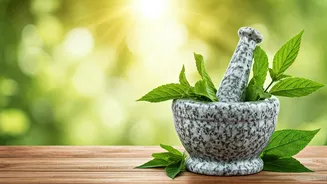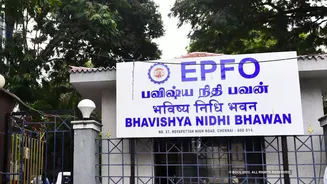Understanding Polio's Threat
Polio, a disease that once caused widespread fear, is a highly contagious illness. It primarily affects young children, and its transmission occurs through
the fecal-oral route, spreading rapidly in areas with poor sanitation. The polio virus attacks the nervous system, potentially leading to paralysis, muscle weakness, and, in severe cases, death. The good news is that polio is preventable through vaccination, and significant strides have been made to eradicate it globally. Despite these advances, the risk persists, making preventive measures a continuing necessity, especially in regions with limited healthcare access. Understanding the nature of polio, its transmission, and its impact is the initial step toward safeguarding your health and that of your community. Maintaining hygiene, promoting vaccination, and adopting preventive measures are crucial in the ongoing fight against polio.
Dietary Wisdom for Defense
Ayurveda emphasizes the importance of a balanced diet to promote overall well-being and resistance to disease. In the context of polio prevention, specific dietary adjustments can be beneficial. Prioritize easily digestible, nourishing foods such as freshly cooked meals and avoid processed and heavy foods that may strain the digestive system. Include foods that boost immunity, like fresh fruits and vegetables rich in antioxidants. Incorporating ginger, garlic, and turmeric into your diet can assist in bolstering your immune response. Drink plenty of warm water throughout the day to support detoxification and enhance digestion. A well-nourished body is better equipped to fight off infections, and adopting a diet aligned with Ayurvedic principles can be a powerful preventive measure against polio and other ailments.
Daily Rituals for Resilience
Establishing a regular daily routine, or Dinacharya, is a fundamental tenet of Ayurvedic practices. This routine supports the natural rhythms of the body, fostering optimal health. Start your day with early rising, ideally before sunrise. Practice gentle yoga or stretching exercises to energize the body and improve circulation. Engage in regular physical activity appropriate for your fitness level. Consider incorporating the practice of oil massage (Abhyanga) to nourish the skin and boost the immune system. Adequate rest and sleep are also essential; aim for seven to eight hours of quality sleep each night. By adhering to these simple daily rituals, you can fortify your body's defenses, supporting a strong immune system better prepared to resist the polio virus. These practices foster physical and mental well-being, contributing to a healthier life.
Herbal Remedies Explained
Ayurveda makes extensive use of herbs to maintain and restore health. Certain herbs are known for their ability to strengthen the immune system and promote overall resilience, which can be beneficial in preventing polio. Consider incorporating herbs such as Ashwagandha and Tulsi (holy basil), known for their adaptogenic properties, helping the body to adapt to stress and support the immune response. Amalaki (Indian gooseberry), rich in vitamin C, is another excellent option for boosting immunity. Turmeric, with its anti-inflammatory properties, can be added to your diet. Before incorporating any herbal remedies, it's essential to consult with a qualified Ayurvedic practitioner to ensure safety and determine appropriate dosages. They can provide personalized guidance based on your constitution and health needs. Employing herbal remedies as part of a holistic health approach can offer a complementary layer of protection against polio.














